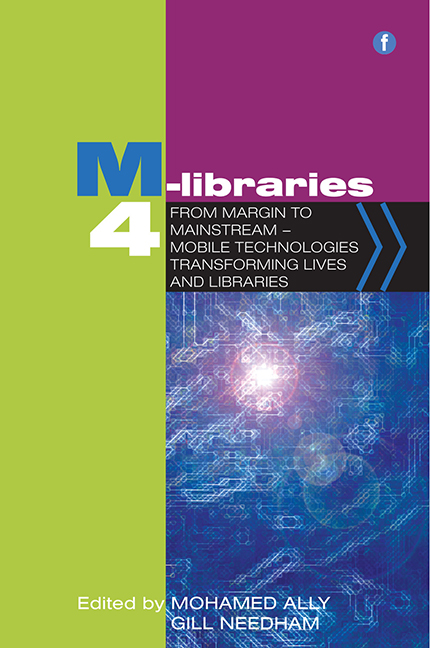17 - A new method of training users: Polimedia video for iOS and Android devices
Published online by Cambridge University Press: 10 September 2022
Summary
Introduction
There is no doubt that mobile technology has changed our lives in many ways – from getting organized at work, to how we communicate and even our study or play habits. Libraries are not the exception that proves the rule. In recent years we have seen how libraries had made great efforts – and also huge advances – to leverage technology and its application in order to improve and expand their services. Traditionally, borrowing books has been one of most important and valued services for library users. After the loan service, one of the main library functions is to provide access to information, and to disseminate information. Therefore most libraries invest time and expertise in information literacy.
For several years, Universitat Autònoma de Barcelona Library Services (UAB SdB) has been organizing an introductory face-to-face course for all ‘first time’ students to explain how to access library information resources. This includes instruction in how to consult the bibliographic database and how to locate any kind of document. The course, called ‘Vine a conèixer la teva biblioteca’ (Come and get to know your library) is common to all UAB libraries and has had very satisfactory results.
The course was designed to help students to develop skills and capabilities needed not only for their studies but also throughout their careers. This type of training cannot be forced; it is only when students realize that they lack the ability to find the literature that is relevant to their needs that they will take the time to learn. User education is an investment for the future. The users acquire the skills to find relevant information in the library and take advantage of its bibliographic resources, thus making knowledge accessible to those who need it. Although none of this is new, the fact is that users’ preferences are increasingly moving towards flexible attendance rather than fixed courses.
Thanks to the increasing use of mobile devices, users have access to information from anywhere and anytime, and as often as they want, allowing much more learning to take place than in traditional teaching models. Thus, ICTs help to improve the learning process and reflection on dynamic concepts that are usually difficult to understand in lectures.
- Type
- Chapter
- Information
- M-Libraries 4From Margin to Mainstream - Mobile Technologies Transforming Lives and Libraries, pp. 155 - 164Publisher: FacetPrint publication year: 2014



